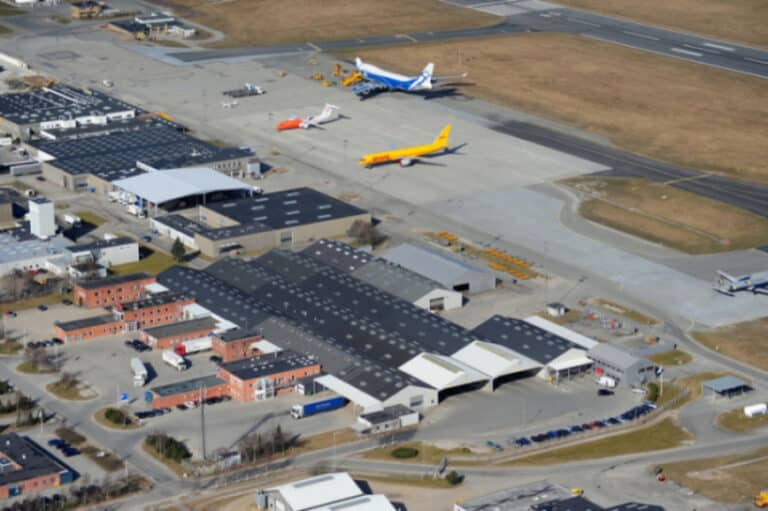Cargo volumes at Billund Airport have received a strong boost with the addition of a second weekly Turkish Cargo freighter service.
Turkish Cargo started weekly freighter flights on 10 April and added a second service on 3 November 2016. The second freighter is compensating for the shortfall in capacity on Turkish Airlines’ passenger flights that have been reduced in both Denmark and Germany.
Turkish Airlines regional cargo manager Denmark, Cem Kavas says: “While the Sunday operation will remain a dedicated flight between Billund and Istanbul, the Thursday flight will be shared with Vienna on a routing Istanbul-Vienna-Billund-Istanbul, also operated with our own Airbus A330-200F aircraft which will of course increase the total capacity thrown into the market.”
Billund is well located not only cater for the Danish market but also Northern Germany and Northern Europe.
Kavas comments: “Cargo will be trucked into Billund from the Hamburg area, but we are also marketing our service to salmon exporters in Norway and the Faroe Islands where shipments will be sailed into harbours close to Billund and trucked into the airport for uplift via Istanbul to the 250 destinations on the route map of Turkish Airlines.”
Billund is Denmark’s second largest airport, and has been growing steadily this year. Volumes grew 15.3 per cent in October to 6,351 tonnes and by 3.1 per cent to 54,451 tonnes so far this year. As well as cargo carried on passenger aircraft, the integrators such as DHL, UPS and TNT are very important, as well as express logistics company, time:matters.
Billund Airport vice president cargo, Jan Ditlevsen (pictured) is upbeat about continuing growth in cargo volumes, telling Air Cargo Week: “We are happy to see a healthy diversity of air cargo commodities through our airport which secures a balanced and sustained development, in contrast to being overly exposed to seasonal or cyclical variations within narrow segments.”
“Our export shipments thus comprise not least of heavy industrial cargo from regional industries, electronics, perishables including salmon and a wide range of other foodstuff. Import shipments comprise of huge quantities of textiles for a substantial number of brands located in our backyard, as well as much express cargo and, not least, growing volumes of e-trade commodities.”
He adds: “E-trade is certainly growing in importance, primarily transported by the integrators, and we have all facilities as well as abundant resources for further expansion of facilities as warranted by the market.”
Billund is equipped with state-of-the-art cargo handling facilities and equipment, including the largest provision of screening gear in Denmark. The airport operates 24/7 and has strong transport infrastructure both North to South and East to West on the roads, railways and harbours.
Ditlevsen says cargo shipments to and from the Hamburg area will travel faster through Billund and via Frankfurt due to congestion on Germany’s highways.
He tells ACW: “The geographical location of Billund Airport is ideally positioned to serve not only Western Denmark, the rest of the country as well as Norway’s seafood exporters and Southern Scandinavia – but also forwarders in the Northern part of Germany, as attested by Turkish Cargo’s freighter service.”




